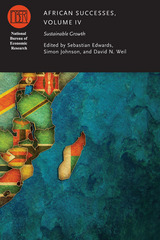
The fourth volume in the series, African Successes: Sustainable Growth combines informative case studies with careful empirical analysis to consider the prospects for future African growth.

In carefully crafted short texts, his social conscience is revealed as he highlights political shortcomings, economic injustice, and corruption in Egypt and the wider Arab world. His philosophical sensitivity comes to the fore as he contemplates the meaning of a historic events, contributions of an influential people, and what is required to lead a good life. The collapse of the Soviet Union, the Oslo peace accords, the spread of terrorism, the Cairo earthquake, the passing of Louis Awad, Yusuf Idris, Yahya Hakki, the third term of Hosni Mubarak, climate change, and more come under Naguib Mahfouz’s fine scrutiny. For any fan of Mahfouz’s fiction, this collection opens a window on a different side of his intellect, and it offers insights from one of the region’s greatest modern minds.

A Church Father’s theological citadel.
Aurelius Augustine (AD 354–430), one of the most important figures in the development of western Christianity and philosophy, was the son of a pagan, Patricius of Tagaste, and his Christian wife, Monnica. While studying to become a rhetorician, he plunged into a turmoil of philosophical and psychological doubts, leading him to Manichaeism. In 383 he moved to Rome and then Milan to teach rhetoric. Despite exploring classical philosophical systems, especially skepticism and Neoplatonism, his studies of Paul’s letters with his friend Alypius, and the preaching of Bishop Ambrose, led in 386 to his momentous conversion from mixed beliefs to Christianity. He soon returned to Tagaste and founded a religious community, and in 395 or 396 became bishop of Hippo.
From Augustine’s large output the Loeb Classical Library offers that great autobiography the Confessions (in two volumes); On the City of God (seven volumes), which unfolds God’s action in the progress of the world’s history, and propounds the superiority of Christian beliefs over pagan in adversity; and a selection of Letters which are important for the study of ecclesiastical theologians.

“A time when panics seem far removed is the best time to prepare our financial system to withstand a storm. The most crying need this country has is a proper banking and currency system. The existing one is inadequate, and everyone who has studied the question admits it.”—William Howard Taft
The interaction between President William Howard Taft and the Congress provides a window on his leadership. Volume IV of The Collected Works of William Howard Taft is devoted to his messages to the legislative branch and concerns some of the pressing issues of the day, issues that have relevance still.
Oftentimes President Taft was at odds with a somewhat reactionary Congress, causing him to veto legislation that he thought unwise. For example, his commitment to the independence of elected judges led him to reject statehood for Arizona until its constitution was altered to address his objection.
His messages also touched on subjects for which he led the way over the objections of Congress, such as his recommendation of a federal law to protect resident aliens against denial of their civil rights and his advocacy of free trade with Canada.
In his commentary to the volume, Professor Burton points out: “There is exhibited time after time concern for the American people, for men and women from different walks of life. Taft comes across less as a judge, which he had been, or the chief justice he was to become, and more as a sitting president of all the people.”
Taft’s Presidential Messages to Congress provides the documentary evidence to support that claim.


This is the first comprehensive study of the constitutionality of the Parliamentary legislation cited by the American Continental Congress as a justification for its rebellion against Great Britain in 1776. The content and purpose of that legislation is well known to historians, but here John Phillip Reid places it in the context of eighteenth-century constitutional doctrine and discusses its legality in terms of the intellectual premises of eighteenth-century Anglo-American legal values.
The Authority of Law is the last of a four-volume work, preceded by The Authority to Tax, The Authority of Rights, and The Authority to Legislate. In these previous volumes, Reid argued that there would have been no rebellion had taxation been the only constitutional topic of controversy, that issues of rights actually played a larger role in the drafting of state and federal constitutions than they did in instigating a rebellion, and that the American colonists finally took to the battlefield against the British because of statutes that forced Americans to either concede the authority to legislate or leave the empire.
Expanding on the evidence presented in the first three volumes, The Authority of Law determines the constitutional issues dividing American whigs from British imperialists. Reid summarizes these issues as “the supremacy issue,” “the Glorious Revolution issue,” “the liberty issue,” and the “representation issue.” He then raises a compelling question: why, with so many outstanding lawyers participating in the debate, did no one devise a constitutionally legal way out of the standoff? Reid makes an original suggestion. No constitutional solution was found because the British were more threatened by American legal theory than the Americans were by British theory. British lawyers saw the future of liberty in Great Britain endangered by the American version of constitutional law.
Considered as a whole, Reid’s Constitutional History of the American Revolution contributes to an understanding of the central role of legal and constitutional standards, especially concern for rule by law, in the development of the American nation.

Athenaeus (ca. 170ca. 230 CE), a Greek of Naucratis in Egypt, lived in Rome and wrote a historical work now lost. Of the fifteen books of his surviving Deipnosophists ('Sophists at Dinner'), the first two and parts of the third, eleventh, and fifteenth exist only in summary, the rest apparently complete. In it he pretends to tell a friend about a banquet at a scholar's house whither the learned guests brought extracts from poetry for recitation and discussion. Much of the matter however concerns the food provided and accessories. One learns about cooks, strange dishes, wines, menu cards, and countless other matters. Athenaeus was an antiquarian. The whole work, which mentions nearly eight hundred writers and two thousand five hundred writings, is a large treasury of information not only about table matters but also music, dances, games, and all sorts of literary subjects. And it abounds in quotations, mostly made direct by Athenaeus himself, from authors whose writings have not survived.
The Loeb Classical Library edition of The Deipnosophists is in seven volumes. There is a comprehensive index in the final volume.

Antiquity’s original travel guide.
Pausanias, born probably in Lydia in Asia Minor, was a Greek of the second century AD, about 120–180, who traveled widely not only in Asia Minor, Palestine, Egypt, and North Africa, but also in Greece and in Italy, including Rome. He left a description of Greece in ten books, which is like a topographical guidebook or tour of Attica, the Peloponnese, and central Greece, filled out with historical accounts and events and digressions on facts and wonders of nature. His chief interest was in monuments of art and architecture, especially the most famous of them; the accuracy of his descriptions is proved by surviving remains.
The Loeb Classical Library edition of Pausanias is in five volumes; the fifth volume contains maps, plans, illustrations, and a general index.

A major new edition of the so-called Presocratics.
The fragments and testimonia of the early Greek philosophers (often labeled the ‘Presocratics’) have always been not only a fundamental source for understanding archaic Greek culture and ancient philosophy but also a perennially fresh resource that has stimulated Western thought until the present day. This new systematic conception and presentation of the evidence differs in three ways from Hermann Diels’s groundbreaking work, as well as from later editions: it renders explicit the material’s thematic organization; it includes a selection from such related bodies of evidence as archaic poetry, classical drama, and the Hippocratic corpus; and it presents an overview of the reception of these thinkers until the end of antiquity.
Volume I contains introductory and reference materials essential for using all other parts of the edition.
Volume II presents preliminary chapters on ancient doxography, the cosmological and moral background, and includes the early Ionian thinkers Pherecydes, Thales, Anaximander, and Anaximenes.
Volume III includes the early Ionian thinkers Xenophanes and Heraclitus.
Volume IV presents Pythagoras and the Pythagorean School, including Hippasus, Philolaus, Eurytus, Archytas, Hicetas, and Ecphantus, along with chapters on doctrines not attributed by name and reception.
Volume V includes the western Greek thinkers Parmenides, Zeno, Melissus, Empedocles, Alcmaeon, and Hippo.
Volume Vi includes the later Ionian and Athenian thinkers Anaxagoras, Archelaus, and Diogenes of Apollonia, along with chapters on early Greek medicine and the Derveni Papyrus.
Volume VII includes the atomists Leucippus and Democritus.
Volume VIII includes the so-called sophists Protagoras, Gorgias, Prodicus, Thrasymachus, and Hippias, along with testimonia relating to the life, views, and argumentative style of Socrates.
Volume IX includes the so-called sophists Antiphon, Lycophron, and Xeniades, along with the Anonymous of Iamblichus, the Dissoi Logoi, a chapter on characterizations of the ‘sophists’ as a group, and an appendix on philosophy and philosophers in Greek drama.


Rhetorical remnants.
The Loeb Classical Library series Fragmentary Republican Latin continues with oratory, an important element of Roman life from the earliest times, essential to running public affairs and for advancing individual careers long before it acquired literary dimensions, which happened once orators decided to write up and circulate written versions of their speeches after delivery.
Beginning with Appius Claudius Caecus (340–273 BC), this three-volume edition covers the full range of speech-making—political, juridical, and epideictic (display)—and with the exceptions of Cato the Elder and Cicero includes all individuals for whom speech-making is attested and for whose speeches quotations, descriptive testimonia, or historiographic recreations survive.
Such an overview provides insight into the typical forms and themes of Roman oratory as well as its wide variety of occasions and styles. By including orators from different phases within the Republican period as well as men given high or low rankings by contemporaries and later ancient critics, the collection offers a fuller panorama of Roman Republican oratory than a selection guided simply by an orator’s alleged or canonical quality, or by the amount of evidence available.
This edition includes all the orators recognized by Malcovati and follows her numbering, but the texts have been drawn from the most recent and reliable editions of the source authors and revised in light of current scholarship; additional material has been included with its own separate numbering. Helping to guide readers through the material are faithful translations, informative introductions, and ample annotation.

The ecumene in prose.
Strabo (ca. 64 BC to ca. AD 25), an Asiatic Greek of Amasia in Pontus, studied at Nysa and after 44 BC at Rome. He became a keen traveler who saw a large part of Italy, various near eastern regions including the Black Sea, various parts of Asia Minor, Egypt as far as Ethiopia, and parts of Greece. He was a long time in Alexandria where he no doubt studied mathematics, astronomy, and history.
Strabo’s historical work is lost, but his most important Geography in seventeen books has survived. After two introductory books, numbers 3 and 4 deal with Spain and Gaul, 5 and 6 with Italy and Sicily, 7 with north and east Europe, 8–10 with Greek lands, 11–14 with the main regions of Asia and with Asia Minor, 15 with India and Iran, 16 with Assyria, Babylonia, Syria, and Arabia, 17 with Egypt and Africa. In outline he follows the great mathematical geographer Eratosthenes, but adds general descriptions of separate countries including physical, political, and historical details. A sequel to his historical memoirs, Geography is planned apparently for public servants rather than students—hence the accounts of physical features and of natural products. On the mathematical side it is an invaluable source of information about Eratosthenes, Hipparchus, and Posidonius.
The Loeb Classical Library edition of Strabo is in eight volumes.

A gathering of poetic blossoms.
The Greek Anthology (literally, “Gathering of Flowers”) is the name given to a collection of about 4500 short Greek poems (called epigrams but usually not epigrammatic) by about 300 composers. To the collection (called Stephanus, literally, “wreath” or “garland”) made and contributed to by Meleager of Gadara (1st century BC) was added another by Philippus of Thessalonica (late 1st century AD), a third by Diogenianus (2nd century), and much later a fourth, called the Circle, by Agathias of Myrina. These (lost) and others (also lost) were partly incorporated, arranged according to contents, by Constantinus Cephalas (early 10th century?) into fifteen books now preserved in a single manuscript of the Palatine Library at Heidelberg. The grand collection was rearranged and revised by the monk Maximus Planudes (14th century) who also added epigrams lost from Cephalas’ compilation.
The fifteen books of the Palatine Anthology are: I, Christian Epigrams; II, Descriptions of Statues; III, Inscriptions in a temple at Cyzicus; IV, Prefaces of Meleager, Philippus, and Agathias; V, Amatory Epigrams; VI, Dedicatory; VII, Sepulchral; VIII, Epigrams of St. Gregory; IX, Declamatory; X, Hortatory and Admonitory; XI, Convivial and Satirical; XII, Strato’s “Musa Puerilis”; XIII, Metrical curiosities; XIV, Problems, Riddles, and Oracles; XV, Miscellanies. Book XVI is the Planudean Appendix: Epigrams on works of art.
Outstanding among the poets are Meleager, Antipater of Sidon, Crinagoras, Palladas, Agathias, Paulus Silentiarius.

Precious snippets of ancient song.
Bacchylides, nephew of Simonides and rival of Pindar, wrote choral poetry of many types. We have a number of his victory odes—poems celebrating victories in athletic contests—as well as dithyrambs and other hymns. He was a master of the captivating narrative. Also represented in this volume is the Boeotian Corinna, whose work, versions of local myths, survives in greater quantity than that of any other Greek woman poet except Sappho. Ancient authorities regarded Corinna as an older contemporary and mentor of Pindar; but some modern scholars place her later, in the third century BC. Other women are here too: Myrtis, also from Boeotia; Telesilla of Argos, famous for her military leadership as well as her hymns; the shadowy Charixena; and Praxilla of Sicyon, author of choral poems and drinking songs.
David Campbell gives all the extant verse of these poets, along with the ancients’ accounts of their lives and works. This fourth volume of his much-praised edition of Greek lyric poetry also includes Timocreon of Rhodes, pentathlete and writer of invective; Diagoras of Melos, choral poet and alleged atheist; and Ion of Chios. Sophocles is represented by fragments of his paean Asclepius, Euripides by the few surviving lines of his ode for Alcibiades’ dazzling victory in the chariot race at Olympia.
This is the fourth in a five-volume edition of Greek lyric poets. Sappho and Alcaeus, the illustrious singers of sixth-century Lesbos, are in the first. Volume II contains the work of Anacreon, composer of solo song; the Anacreontea; and the earliest writers of choral poetry, notably the seventh-century Spartans Alcman and Terpander. Stesichorus, Ibycus, Simonides, and other sixth-century poets are in Volume III. The last volume includes the new school of dithyrambic poets (mid-fifth to mid-fourth century), together with the anonymous poems: drinking songs, children’s songs, cult hymns, and others.

The definitive English edition of the “Father of Medicine.”
Hippocrates, said to have been born in Cos in or before 460 BC, learned medicine and philosophy; traveled widely as a medical doctor and teacher; was consulted by King Perdiccas of Macedon and Artaxerxes of Persia; and died perhaps at Larissa. Apparently he rejected superstition in favor of inductive reasoning and the study of real medicine as subject to natural laws, in general and in individual people as patients for treatment by medicines and surgery. Of the roughly seventy works in the “Hippocratic Collection” many are not by Hippocrates; even the famous oath may not be his. But he was undeniably the “Father of Medicine.”
The works available in the Loeb Classical Library edition of Hippocrates are:
Volume I: Ancient Medicine. Airs, Waters, Places. Epidemics 1 and 3. The Oath. Precepts. Nutriment.
Volume II: Prognostic. Regimen in Acute Diseases. The Sacred Disease. The Art. Breaths. Law. Decorum. Dentition.
Volume III: On Wounds in the Head. In the Surgery. On Fractures. On Joints. Mochlicon.
Volume IV: Nature of Man. Regimen in Health. Humors. Aphorisms. Regimen 1–3. Dreams.
Volume V: Affections. Diseases 1–2.
Volume VI: Diseases 3. Internal Affections. Regimen in Acute Diseases.
Volume VII: Epidemics 2 and 4–7.
Volume VIII: Places in Man. Glands. Fleshes. Prorrhetic 1–2. Physician. Use of Liquids. Ulcers. Haemorrhoids and Fistulas.
Volume IX: Anatomy. Nature of Bones. Heart. Eight Months’ Child. Coan Prenotions. Crises. Critical Days. Superfetation. Girls. Excision of the Fetus. Sight.
Volume X: Generation. Nature of the Child. Diseases 4. Nature of Women. Barrenness.
Volume XI: Diseases of Women 1–2.
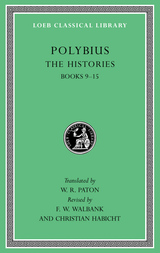
Hellenistic history.
The historian Polybius (ca. 200–118 BC) was born into a leading family of Megalopolis in the Peloponnese (Morea) and served the Achaean League in arms and diplomacy for many years, favoring alliance with Rome. From 168 to 151 he was held hostage in Rome, where he became a friend of Lucius Aemilius Paulus and his two sons, especially Scipio Aemilianus, whose campaigns, including the destruction of Carthage, he later attended. Late in his life he became a trusted mediator between Greece and the Romans; helped in the discussions that preceded the final war with Carthage; and after 146 was entrusted by the Romans with the details of administration in Greece.
Polybius’ overall theme is how and why the Romans spread their power as they did. The main part of his history covers the years 264–146 BC, describing the rise of Rome, her destruction of Carthage, and her eventual domination of the Greek world. It is a great work: accurate, thoughtful, largely impartial, based on research, and full of insight into customs, institutions, geography, the causes of events, and the character of peoples. It is a vital achievement of the first importance despite the incomplete state in which all but the first five of its original forty books have reached us.
For this edition, W. R. Paton’s excellent translation, first published in 1922, has been thoroughly revised, the Büttner-Wobst Greek text corrected, and explanatory notes and a new introduction added, all reflecting the latest scholarship.
The Loeb Classical Library edition of Polybius is in six volumes.

Polybius (born ca. 208 BCE) of Megalopolis in the Peloponnese (Morea), served the Achaean League in arms and diplomacy for many years, favouring alliance with Rome. From 168 to 151 he was hostage in Rome where he became a friend of Aemilius Paulus and his two sons, and especially adopted Scipio Aemilianus whose campaigns he attended later. In late life he was trusted mediator between Greece and the Romans whom he admired; helped in the discussions which preceded the final war with Carthage; and, after 146, was entrusted by the Romans with details of administration in Greece. He died at the age of 82 after a fall from his horse.
The main part of Polybius's history covers the years 264146 BCE. It describes the rise of Rome to the destruction of Carthage and the domination of Greece by Rome. It is a great work, accurate, thoughtful, largely impartial, based on research, full of insight into customs, institutions, geography, causes of events and character of people; it is a vital achievement of first rate importance, despite the incomplete state in which all but the first five of the forty books have reached us. Polybius's overall theme is how and why the Romans spread their power as they did.
The Loeb Classical Library edition of Polybius is in six volumes.
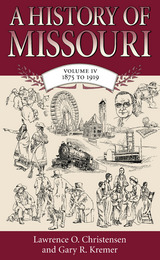
Drawing on original research in primary sources, this comprehensive study covers such topics as the Constitution of 1875, the impact of railroad expansion, the 1904 World's Fair, the Populist and Progressive movements, and World War I. It also deals with less familiar topics, such as the state's use of convict labor to save taxpayers money, the emergence of women's clubs, the arrival of moving pictures, and the terrible conditions under which coal miners worked and lived.
Research on the weekly newspapers of such towns as Edina, Bethany, Boonville, Mount Vernon, and Kennett provides a comparative regional and rural perspective on events that took place around the turn of the century, giving the reader a unique glimpse of what small-town life was like. The rapid growth of Missouri's cities is also discussed in detail. St. Louis's development as one of the nation's leading cities is fully recorded, as is the rise of smaller towns such as St. Joseph, Joplin, Springfield, and Sedalia. Kansas City's City Beautiful Movement and the rise of the Pendergast Machine are also treated.
Significant attention is given to World War I. The authors document Missourians' reliance on voluntarism to support the war effort, and they also explain how government officials mobilized the citizens of the state to support the war, especially Missourians of German ancestry. The book fully details the experiences of African Americans and women who lived in Missouri during the period.
This extensive and balanced coverage of Missouri as it moved into the twentieth century will be the authoritative volume on the subject for decades to come. Anyone with an interest in Missouri history will treasure this informative new resource.

Rome, from the beginning.
Livy (Titus Livius), the great Roman historian, was born at or near Patavium (Padua) in 64 or 59 BC; he may have lived mostly in Rome but died at Patavium, in AD 12 or 17.
Livy’s only extant work is part of his history of Rome from the foundation of the city to 9 BC. Of its 142 books, we have just thirty-five, and short summaries of all the rest except two. The whole work was, long after his death, divided into Decades or series of ten. Books 1–10 we have entire; books 11–20 are lost; books 21–45 are entire, except parts of 41 and 43–45. Of the rest only fragments and the summaries remain. In splendid style Livy, a man of wide sympathies and proud of Rome’s past, presented an uncritical but clear and living narrative of Rome’s rise to greatness.
The Loeb Classical Library edition of Livy is in fourteen volumes. The last volume includes a comprehensive index.
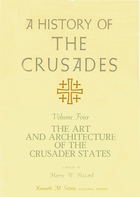

Classic political realism.
Thucydides of Athens was born about 471 BC. He saw the rise of Athens to greatness under the inspired leadership of Pericles. In 430, the second year of the Peloponnesian War, he caught and survived the horrible plague that he described so graphically. Later, as general in 423 he failed to save Amphipolis from the enemy and was disgraced. He tells us about this, not in volumes of self-justification, but in one sentence of his history of the war—that it befell him to be an exile for twenty years. He then lived probably on his property in Thrace, but was able to observe both sides in certain campaigns of the war, and returned to Athens after her defeat in 404. He had been composing his famous history, with its hopes and horrors, triumphs and disasters, in full detail from first-hand knowledge, along with the accounts of others.
The war was really three conflicts with one uncertain peace after the first; and Thucydides had not unified them into one account when death came sometime before 396. His history of the first conflict, 431–421, was nearly complete; Thucydides was still at work on this when the war spread to Sicily and into a conflict (415–413) likewise complete in his awful and brilliant record, though not fitted into the whole. His story of the final conflict of 413–404 breaks off (in the middle of a sentence) when dealing with the year 411. So his work was left unfinished and as a whole unrevised. Yet in brilliance of description and depth of insight this history has no superior.
The Loeb Classical Library edition of Thucydides is in four volumes.

Late antique military operations.
Procopius, born at Caesarea in Palestine late in the fifth century, became a lawyer. In AD 527 he was made legal adviser and secretary of Belisarius, commander against the Persians, and went with Belisarius again in 533 against the Vandals and in 535 against the Ostrogoths. Sometime after 540 he returned to Constantinople. He may have been that Procopius who was prefect of Constantinople in 562, but the date of his death (after 558) is unknown.
Procopius’ History of the Wars in 8 books recounts the Persian Wars of emperors Justinus and Justinian down to 550 (2 books); the Vandalic War and after-events in Africa 532–546 (2 books); the Gothic War against the Ostrogoths in Sicily and Italy 536–552 (3 books); and a sketch of events to 554 (1 book). The whole consists largely of military history, with much information about peoples and places as well, and about special events. He was a diligent, careful, judicious narrator of facts and developments and shows good powers of description. He is just to the empire’s enemies and boldly criticizes emperor Justinian. Other works by Procopius are the Anecdota or Secret History—vehement attacks on Justinian, Theodora, and others; and the Buildings of Justinian (down to AD 558) including roads and bridges as well as churches, forts, hospitals, and so on in various parts of the empire.
The Loeb Classical Library edition of Procopius is in seven volumes.
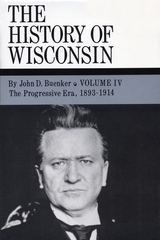
Published in Wisconsin's Sesquicentennial year, this fourth volume in The History of Wisconsin series covers the twenty tumultuous years between the World's Columbian Exposition and the First World War when Wisconsin essentially reinvented itself, becoming the nation's "laboratory of democracy."
The period known as the Progressive Era began to emerge in the mid-1890s. A sense of crisis and a widespread clamor for reform arose in reaction to rapid changes in population, technology, work, and society. Wisconsinites responded with action: their advocacy of women's suffrage, labor rights and protections, educational reform, increased social services, and more responsive government led to a veritable flood of reform legislation that established Wisconsin as the most progressive state in the union.
As governor and U.S. Senator from Wisconsin, Robert M. La Follette, Sr., was the most celebrated of the Progressives, but he was surrounded by a host of pragmatic idealists from politics, government, and the state university. Although the Progressives frequently disagreed over priorities and tactics, their values and core beliefs coalesced around broad-based participatory democracy, the application of scientific expertise to governance, and an active concern for the welfare of all members of society-what came to be known as "the Wisconsin Idea."

In the 1960s, art patron Dominique de Menil founded an image archive showing the ways that people of African descent have been represented in Western art. Highlights from her collection appeared in three large-format volumes that quickly became collector’s items. A half-century later, Harvard University Press and the Du Bois Institute are proud to publish a complete set of ten sumptuous books, including new editions of the original volumes and two additional ones.
Slaves and Liberators looks at the political implications of the representation of Africans, from the earliest discussions of the morality of slavery, through the rise of abolitionism, to the imposition of European imperialism on Africa. Popular imagery and great works, like Gericault’s Raft of the Medusa and Turner’s Slave Ship, are considered in depth, casting light on widely differing European responses to Africans and their descendants.

In the 1960s, art patron Dominique de Menil founded an image archive showing the ways that people of African descent have been represented in Western art. Highlights from her collection appeared in three large-format volumes that quickly became collector’s items. A half-century later, Harvard University Press and the Du Bois Institute are proud to publish a complete set of ten sumptuous books, including new editions of the original volumes and two additional ones.
Black Models and White Myths examines the tendentious racial assumptions behind representations of Africans that emphasized the contrast between “civilization” and “savagery” and the development of so-called scientific and ethnographic racism. These works often depicted Africans within a context of sexuality and exoticism, representing their allegedly natural behavior as a counterpoint to inhibited European conduct.


Greco-Roman antiquity’s premier Jewish historian.
Josephus, soldier, statesman, historian, was a Jew born at Jerusalem about AD 37. A man of high descent, he early became learned in Jewish law and Greek literature and was a Pharisee. After pleading in Rome the cause of some Jewish priests he returned to Jerusalem and in 66 tried to prevent revolt against Rome, managing for the Jews the affairs of Galilee. In the troubles that followed he made his peace with Vespasian. Present at the siege of Jerusalem by Titus, he received favors from these two as emperors and from Domitian, and assumed their family name Flavius. He died after 97.
As a historical source Josephus is invaluable. His major works are: History of the Jewish War, in seven books, from 170 BC to his own time, first written in Aramaic but translated by himself into the Greek we now have; and Jewish Antiquities, in twenty books, from the creation of the world to AD 66. The Loeb Classical Library edition of the works of Josephus, which is in thirteen volumes, also includes the autobiographical Life and his treatise Against Apion.

Scholars at dinner.
In The Learned Banqueters, Athenaeus describes a series of dinner parties at which the guests quote extensively from Greek literature. The work (which dates to the very end of the second century AD) is amusing reading and of extraordinary value as a treasury of quotations from works now lost. Athenaeus also preserves a wide range of information about different cuisines and foodstuffs; the music and entertainments that ornamented banquets; and the intellectual talk that was the heart of Greek conviviality. S. Douglas Olson has undertaken to produce a complete new edition of the work, replacing the previous seven-volume Loeb Athenaeus (published under the title Deipnosophists).

The private correspondence of Rome’s most prolific public figure.
To his dear friend Atticus, Cicero reveals himself as to no other of his correspondents except perhaps his brother. In Cicero's Letters to Atticus we get an intimate look at his motivations and convictions and his reactions to what is happening in Rome. These letters also provide a vivid picture of a momentous period in Roman history, years marked by the rise of Julius Caesar and the downfall of the Republic.
When the correspondence begins in November 68 BC, the 38-year-old Cicero is a notable figure in Rome: a brilliant lawyer and orator, he has achieved primacy at the Roman bar and a political career that would culminate in the consulship in 63. Over the next twenty-four years—until November 44, a year before he was put to death by the forces of Octavian and Mark Antony—Cicero wrote frequently to his friend and confidant, sharing news and views and discussing affairs of business and state. It is to this corpus of over 400 letters that we owe most of our information about Cicero's literary activity. Here too is a revealing picture of the staunch republican's changing attitude toward Caesar. And taken as a whole the letters provide a first-hand account of social and political life in Rome.
D. R. Shackleton Bailey's authoritative edition and translation of the Letters to Atticus is a revised version of his Cambridge Classical Texts and Commentaries edition, with full explanatory notes.

Correspondence of a Cappadocian Father.
Basil the Great was born ca. AD 330 at Caesarea in Cappadocia into a family noted for piety. He was at Constantinople and Athens for several years as a student with Gregory of Nazianzus and was much influenced by Origen. For a short time he held a chair of rhetoric at Caesarea, and was then baptized. He visited monasteries in Egypt and Palestine and sought out the most famous hermits in Syria and elsewhere to learn how to lead a pious and ascetic life; but he decided that communal monastic life and work were best. About 360 he founded in Pontus a convent to which his sister and widowed mother belonged. Ordained a presbyter in 365, in 370 he succeeded Eusebius in the archbishopric of Caesarea, which included authority over all Pontus. He died in 379. Even today his reform of monastic life in the east is the basis of modern Greek and Slavonic monasteries.
The Loeb Classical Library edition of Basil’s Letters is in four volumes.

Remains of a universal chronicle.
Diodorus Siculus, Greek historian of Agyrium in Sicily (ca. 80–20 BC), wrote forty books of world history, called Library of History, in three parts: mythical history of peoples, non-Greek and Greek, to the Trojan War; history to Alexander's death (323 BC); history to 54 BC. Of this we have complete Books 1–5 (Egyptians, Assyrians, Ethiopians, Greeks) and Books 11–20 (Greek history 480–302 BC); and fragments of the rest. He was an uncritical compiler, but used good sources and reproduced them faithfully. He is valuable for details unrecorded elsewhere, and as evidence for works now lost, especially writings of Ephorus, Apollodorus, Agatharchides, Philistus, and Timaeus.
The Loeb Classical Library edition of Diodorus Siculus is in twelve volumes.

Comparative biographies of distinguished Greeks and Romans.
Plutarch (Plutarchus), ca. AD 45–120, was born at Chaeronea in Boeotia in central Greece, studied philosophy at Athens, and, after coming to Rome as a teacher in philosophy, was given consular rank by the emperor Trajan and a procuratorship in Greece by Hadrian. He was married and the father of one daughter and four sons. He appears as a man of kindly character and independent thought, studious and learned.
Plutarch wrote on many subjects. Most popular have always been the forty-six Parallel Lives, biographies planned to be ethical examples in pairs (in each pair, one Greek figure and one similar Roman), though the last four lives are single. All are invaluable sources of our knowledge of the lives and characters of Greek and Roman statesmen, soldiers, and orators. Plutarch's many other varied extant works, about sixty in number, are known as Moralia or Moral Essays. They are of high literary value, besides being of great use to people interested in philosophy, ethics, and religion.
The Loeb Classical Library edition of the Lives is in eleven volumes.

Antiquity’s satirist supreme.
Lucian (ca. AD 120–190), the satirist from Samosata on the Euphrates, started as an apprentice sculptor, turned to rhetoric and visited Italy and Gaul as a successful traveling lecturer before settling in Athens and developing his original brand of satire. Late in life he fell on hard times and accepted an official post in Egypt.
Although notable for the Attic purity and elegance of his Greek and his literary versatility, Lucian is chiefly famed for the lively, cynical wit of the humorous dialogues in which he satirizes human folly, superstition, and hypocrisy. His aim was to amuse rather than to instruct. Among his best works are A True Story (the tallest of tall tales about a voyage to the moon), Dialogues of the Gods (a “reductio ad absurdum” of traditional mythology), Dialogues of the Dead (on the vanity of human wishes), Philosophies for Sale (great philosophers of the past are auctioned off as slaves), The Fisherman (the degeneracy of modern philosophers), The Carousal or Symposium (philosophers misbehave at a party), Timon (the problems of being rich), Twice Accused (Lucian’s defense of his literary career) and (if by Lucian) The Ass (the amusing adventures of a man who is turned into an ass).
The Loeb Classical Library edition of Lucian is in eight volumes.

Eclectic essays on ethics, education, and much else besides.
Plutarch (Plutarchus), ca. AD 45–120, was born at Chaeronea in Boeotia in central Greece, studied philosophy at Athens, and, after coming to Rome as a teacher in philosophy, was given consular rank by the emperor Trajan and a procuratorship in Greece by Hadrian. He was married and the father of one daughter and four sons. He appears as a man of kindly character and independent thought, studious and learned.
Plutarch wrote on many subjects. Most popular have always been the forty-six Parallel Lives, biographies planned to be ethical examples in pairs (in each pair, one Greek figure and one similar Roman), though the last four lives are single. All are invaluable sources of our knowledge of the lives and characters of Greek and Roman statesmen, soldiers and orators. Plutarch’s many other varied extant works, about sixty in number, are known as Moralia or Moral Essays. They are of high literary value, besides being of great use to people interested in philosophy, ethics, and religion.
The Loeb Classical Library edition of the Moralia is in fifteen volumes, volume XIII having two parts. Volume XVI is a comprehensive Index.

An unrivaled compendium of ancient Roman knowledge.
Pliny the Elder, Gaius Plinius Secundus (AD 23–79), a Roman of equestrian rank of Transpadane Gaul (N. Italy), was uncle of Pliny the letter writer. He pursued a career partly military in Germany, partly administrative in Gaul and Spain under the emperor Vespasian, and became prefect of the fleet at Misenum. He died in the eruption of Vesuvius when he went to get a closer view and to rescue friends. Tireless worker, reader, and writer, he was author of works now lost; but his great Natural History in thirty-seven books with its vast collection of facts (and alleged facts) survives—a mine of information despite its uncritical character.
The contents of the books are as follows. Book 1: table of contents of the others and of authorities; 2: mathematical and metrological survey of the universe; 3–6: geography and ethnography of the known world; 7: anthropology and the physiology of man; 8–11: zoology; 12–19: botany, agriculture, and horticulture; 20–27: plant products as used in medicine; 28–32: medical zoology; 33–37: minerals (and medicine), the fine arts, and gemstones.
The Loeb Classical Library edition of Natural History is in ten volumes.

The preeminent orator of ancient Athens.
Demosthenes (384–322 BC), orator at Athens, was a pleader in law courts who later became also a statesman, champion of the past greatness of his city and the present resistance of Greece to Philip of Macedon’s rise to supremacy. We possess by him political speeches and law-court speeches composed for parties in private cases and political cases. His early reputation as the best of Greek orators rests on his steadfastness of purpose, his sincerity, his clear and pungent argument, and his severe control of language. In his law cases he is the advocate, in his political speeches a castigator not of his opponents but of their politics. Demosthenes gives us vivid pictures of public and private life of his time.
The Loeb Classical Library edition of Demosthenes is in seven volumes.

A central work in the history of rhetoric.
Quintilian, born in Spain about AD 35, became a widely known and highly successful teacher of rhetoric in Rome. The Orator’s Education (Institutio Oratoria), a comprehensive training program in twelve books, draws on his own rich experience. It is a work of enduring importance, not only for its insights on oratory, but for the picture it paints of education and social attitudes in the Roman world.
Quintilian offers both general and specific advice. He gives guidelines for proper schooling (beginning with the young boy); analyzes the structure of speeches; recommends devices that will engage listeners and appeal to their emotions; reviews a wide range of Greek and Latin authors of use to the orator; and counsels on memory, delivery, and gestures.
Donald Russell’s five-volume Loeb Classical Library edition of The Orator’s Education, which replaces an eighty-year-old translation by H. E. Butler, provides a text and facing translation that are fully up to date in light of current scholarship and well tuned to today’s manner of expression. Russell also provides unusually rich explanatory notes, which enable full appreciation of this central work in the history of rhetoric.
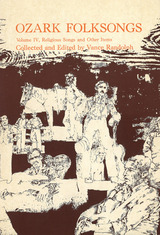
Originally published in 1949, this comprehensive gathering of folksongs is being reissued after many years out of print. The renewed interest in folklore among the general public as well as the scholarly community has prompted this publication.
The collection comprises four volumes including more than eight hundred songs, indexed by title, by first line, and by contributor and town. Each song is thoroughly annotated. In addition to lyrics, the compiler furnished scores and variant lyrics and titles for each song and listed similarities to other songs along with whatever historical information was available to him.
The songs are presented in four volumes. The fourth volume is an assortment of religious songs, hymns, and revival tunes along with sentimental ballads and journalistic pieces.
Characteristic of the compiler's careful work is the painstaking accuracy with which dialect peculiarities are preserved. Randolph scrupulously avoided correcting pronunciation or adding missing words or forgotten lines. Because, as he explains in his introduction, many of the people who sang for him were reluctant to have their voices recorded, his texts represent the best possible reproduction of this priceless American folk art.
A new introduction by W. K. McNeil, folklorist for the Ozark Folklore Center and book review editor for the Journal of American Folklore, comments on Randolph's importance to the field of American folklore and the significance of this work in particular.

The “Father of History.”
Herodotus the great Greek historian was born about 484 BC, at Halicarnassus in Caria, Asia Minor, when it was subject to the Persians. He traveled widely in most of Asia Minor, Egypt (as far as Aswan), North Africa, Syria, the country north of the Black Sea, and many parts of the Aegean Sea and the mainland of Greece. He lived, it seems, for some time in Athens, and in 443 went with other colonists to the new city Thurii (in South Italy), where he died about 430. He was “the prose correlative of the bard, a narrator of the deeds of real men, and a describer of foreign places” (Murray).
Herodotus’ famous history of warfare between the Greeks and the Persians has an epic dignity which enhances his delightful style. It includes the rise of the Persian power and an account of the Persian empire; a description and history of Egypt; and a long digression on the geography and customs of Scythia. Even in the later books on the attacks of the Persians against Greece there are digressions. All is most entertaining and produces a grand unity. After personal inquiry and study of hearsay and other evidence, Herodotus gives us a not uncritical estimate of the best that he could find.
The Loeb Classical Library edition of Herodotus is in four volumes.

Syncretistic exegesis.
The philosopher Philo was born about 20 BC to a prominent Jewish family in Alexandria, the chief home of the Jewish Diaspora as well as the chief center of Hellenistic culture; he was trained in Greek as well as Jewish learning. In attempting to reconcile biblical teachings with Greek philosophy he developed ideas that had wide influence on Christian and Jewish religious thought.
The Loeb Classical Library edition of the works of Philo is in ten volumes and two supplements, distributed as follows. Volume I: Creation; Interpretation of Genesis II and III. II: On the Cherubim; The Sacrifices of Abel and Cain; The Worse Attacks the Better; The Posterity and Exile of Cain; On the Giants. III: The Unchangeableness of God; On Husbandry; Noah's Work as a Planter; On Drunkenness; On Sobriety. IV: The Confusion of Tongues; The Migration of Abraham; The Heir of Divine Things; On the Preliminary Studies. V: On Flight and Finding; Change of Names; On Dreams. VI: Abraham; Joseph; Moses. VII: The Decalogue; On Special Laws Books I–III. VIII: On Special Laws Book IV; On the Virtues; Rewards and Punishments. IX: Every Good Man Is Free; The Contemplative Life; The Eternity of the World; Against Flaccus; Apology for the Jews; On Providence. X: On the Embassy to Gaius; indexes. Supplement I: Questions on Genesis. II: Questions on Exodus; index to supplements.
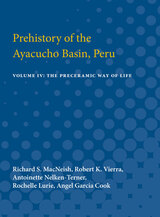


Physical graffiti.
This edition of early Latin writings is in four volumes. The first three contain the extant work of seven poets and surviving portions of the Twelve Tables of Roman law. The fourth volume contains inscriptions on various materials (including coins), all written before 79 BC.
Volume I. Q. Ennius (239–169) of Rudiae (Rugge), author of a great epic (Annales), tragedies and other plays, and satire and other works; Caecilius Statius (ca. 220–ca. 166), a Celt probably of Mediolanum (Milano) in N. Italy, author of comedies.
Volume II. L. Livius Andronicus (ca. 284–204) of Tarentum (Taranto), author of tragedies, comedies, a translation and paraphrase of Homer’s Odyssey, and hymns; Cn. Naevius (ca. 270–ca. 200), probably of Rome, author of an epic on the 1st Punic War, comedies, tragedies, and historical plays; M. Pacuvius (ca. 220–ca. 131) of Brundisium (Brindisi), a painter and later an author of tragedies, a historical play and satire; L. Accius (170–ca. 85) of Pisaurum (Pisaro), author of tragedies, historical plays, stage history and practice, and some other works; fragments of tragedies by authors unnamed.
Volume III. C. Lucilius (180?–102/1) of Suessa Aurunca (Sessa), writer of satire; The Twelve Tables of Roman law, traditionally of 451–450.
Volume IV. Archaic Inscriptions: Epitaphs, dedicatory and honorary inscriptions, inscriptions on and concerning public works, on movable articles, on coins; laws and other documents.

Roman history for a Greek audience.
Dionysius of Halicarnassus was born before 53 BC and went to Italy before 29 BC. He taught rhetoric in Rome while studying the Latin language, collecting material for a history of Rome, and writing. His Roman Antiquities began to appear in 7 BC.
Dionysius states that his objects in writing history were to please lovers of noble deeds and to repay the benefits he had enjoyed in Rome. But he wrote also to reconcile Greeks to Roman rule. Of the twenty books of Roman Antiquities (from the earliest times to 264 BC) we have the first nine complete; most of Books 10 and 11; and later extracts and an epitome of the whole. Dionysius studied the best available literary sources (mainly annalistic and other historians) and possibly some public documents. His work and that of Livy are our only continuous and detailed independent narratives of early Roman history.
Dionysius was author also of essays on literature covering rhetoric, Greek oratory, Thucydides, and how to imitate the best models in literature.
The Loeb Classical Library publishes a two-volume edition of the critical essays; the edition of Roman Antiquities is in seven volumes.

A sweeping chronicle from Aeneas to Alexander Severus.
Dio Cassius (Cassius Dio), circa AD 150–235, was born at Nicaea in Bithynia in Asia Minor. On the death of his father (Roman governor of Cilicia) he went in 180 to Rome, entered the Senate, and under the emperor Commodus was an advocate. He held high offices, becoming a close friend of several emperors; he was made governor of Pergamum and Smyrna; consul in 220; proconsul of Africa; governor of Dalmatia and then of Pannonia; and consul again in 229.
Of the eighty books of Dio's great work Roman History, covering the era from the legendary landing of Aeneas in Italy to the reign of Alexander Severus (AD 222–235), we possess Books 36–60 (36 and 55–60 have gaps), which cover the years 68 BC–AD 47. The missing portions are partly supplied, for the earlier gaps by Zonaras, who relies closely on Dio, and for some later gaps (Book 35 onwards) by John Xiphilinus (of the eleventh century). There are also many excerpts. The facilities for research afforded by Dio's official duties and his own industry make him a very vital source for Roman history of the last years of the republic and the first four emperors.
The Loeb Classical Library edition of Dio Cassius is in nine volumes.

Rome’s internal conflicts, from the Gracchi to the Empire.
Appian (Appianus) is among our principal sources for the history of the Roman Republic, particularly in the second and first centuries BC, and sometimes our only source, as for the Third Punic War and the destruction of Carthage. Born circa AD 95, Appian was an Alexandrian official at ease in the highest political and literary circles who later became a Roman citizen and advocate. He apparently received equestrian rank, for in his later years he was offered a procuratorship. He died during the reign of Antoninus Pius (emperor 138–161).
Appian’s theme is the process by which the Roman Empire achieved its contemporary prosperity, and his unique method is to trace in individual books the story of each nation’s wars with Rome up through her own civil wars. Although this triumph of “harmony and monarchy” was achieved through characteristic Roman virtues, Appian is unusually objective about Rome’s shortcomings along the way. His history is particularly strong on financial and economic matters, and on the operations of warfare and diplomacy.
Of the work’s original twenty-four books, only the Preface and Books 6–9 and 11–17 are preserved complete or nearly so: those on the Spanish, Hannibalic, African, Illyrian, Syrian, and Mithridatic wars, and five books on the civil wars.
This edition of Appian replaces the original Loeb edition by Horace White and adds the fragments, as well as his letter to Fronto.

Appian (Appianus) was a Greek official of Alexandria. He saw the Jewish rebellion of 116 CE, and later became a Roman citizen and advocate and received the rank of eques (knight). In his older years he held a procuratorship. He died during the reign of Antoninus Pius who was emperor 138–161 CE. Honest admirer of the Roman empire though ignorant of the institutions of the earlier Roman republic, he wrote, in the simple “common” dialect, 24 books of “Roman affairs,” in fact conquests, from the beginnings to the times of Trajan (emperor 98–117 CE). Eleven have come down to us complete, or nearly so, namely those on the Spanish, Hannibalic, Punic, Illyrian, Syrian, and Mithridatic wars, and five books on the Civil Wars. They are valuable records of military history.
The Loeb Classical Library edition of Appian is in four volumes.
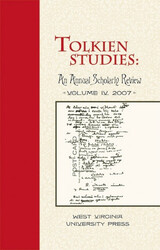
READERS
Browse our collection.
PUBLISHERS
See BiblioVault's publisher services.
STUDENT SERVICES
Files for college accessibility offices.
UChicago Accessibility Resources
home | accessibility | search | about | contact us
BiblioVault ® 2001 - 2024
The University of Chicago Press









